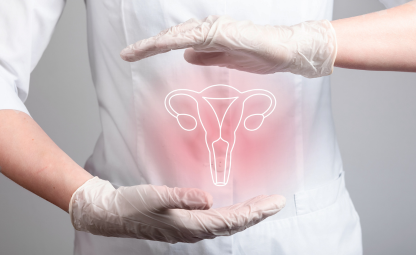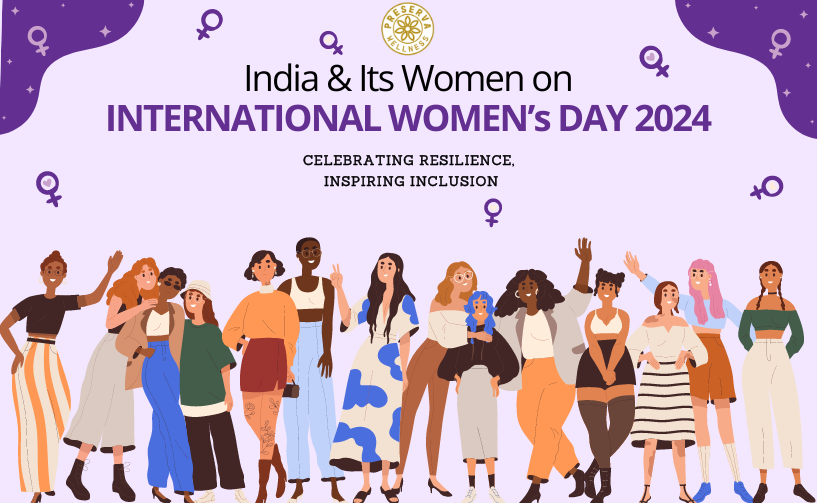Every year on March 8th, the world observes International Women's Day (IWD) – a day dedicated to celebrating the incredible achievements of women worldwide while raising awareness of ongoing challenges faced in the struggle for gender equality. This year's theme, "Inspire Inclusion," holds particular significance in India, a nation rich in diversity and striving towards a future where all voices are heard and valued.
A Look Back: The Roots of IWD
IWD's origins trace back to the early 20th century, emerging from the labour movements in North America and Europe. Recognising the crucial role women played in building societies and facing rampant inequalities, this day became a platform to challenge injustice and pave the way for a more equitable future. In India, IWD offers a unique opportunity to acknowledge the historical and ongoing contributions of women, celebrate their achievements, and renew our commitment towards achieving full gender equality.
Celebrating India's Women: A Tapestry of Strength and Diversity
India boasts a vibrant tapestry of women – from entrepreneurs driving economic growth to scientists pushing the boundaries of knowledge, artists enriching cultural landscapes, community leaders championing social change, and mothers nurturing future generations. These women, across regions, religions, and socioeconomic backgrounds, exemplify resilience, determination, and the unwavering spirit that has shaped India's journey.
IWD 2024: Inspiring Inclusion – A Call to Action
This year's theme, "Inspire Inclusion," is a powerful call to action. It's a call to build a world where women are not only present but actively valued and empowered in all spheres of life. This requires a multifaceted approach that dismantles systemic barriers and fosters an ecosystem of inclusion:
- Bridging the Gap: Access to Education and Opportunities: Despite progress, statistics highlight the persisting need to bridge the gender gap in education and economic opportunities. Ensuring access to quality education, fair wages, and career advancement opportunities for all women is crucial for empowering them to contribute fully to society. Understanding the responsibilities of women in Indian households and supporting women with children is also crucial at any workplace. It is important to provide flexibility and support to them as we are a long way from reducing the dependence on women in running a household.
According to the Periodic Labour Force Survey Report 2022-23, the female labour force participation rate in India stood at 37.0%. Investing in and promoting women's education and training will play a key role in increasing their participation and promoting economic growth.

- Amplifying Voices: Representation and Participation in Decision-Making: True inclusion necessitates amplifying the voices of women in decision-making processes. This extends from local communities to national governance, ensuring their perspectives shape policies and initiatives that impact their lives and the lives of others.
While there has been an increase in women's representation in India's Parliament, with 14.4% of seats occupied by women in the Lok Sabha (lower house) as of 2023, there is still a long way to go to achieve true parity. Encouraging women's participation in political parties and advocating for policies promoting their candidacies are crucial steps towards achieving this goal.
- Creating a Safe Space: Eradicating Gender-Based Violence and Discrimination: Gender-based violence remains a stark reality for women in India. Creating a safe environment requires a multi-pronged approach, including stricter laws, improved enforcement mechanisms, and awareness campaigns to address societal biases and promote respect.
The National Crime Records Bureau (NCRB) reported a soaring 4,45,256 crime cases against women in 2022. Addressing gender-based violence necessitates a comprehensive approach that includes legal reforms, improved support services for victims, and public awareness campaigns aimed at changing societal attitudes.
- Celebrating Diversity: Embracing Intersectionality and Inclusivity: It's crucial to acknowledge the intersectionality of gender with other social identities, such as caste, class, religion, and sexual orientation. This ensures that all women, regardless of their backgrounds, have the opportunity to thrive. Recognising the unique challenges faced by marginalised communities and working towards their inclusion is integral to achieving true equality.
Beyond Words: Highlighting Women's Health and Wellness

International Women's Day 2024 understands that making sure everyone feels included needs to look at everything, not just making money and being involved in politics. It's also about making sure women can get good healthcare and feel well. Here are some essential things to think about in India:
- Maternal Mortality Reduction: While India has made significant strides in reducing maternal mortality rates, challenges still exist. Investing in quality healthcare infrastructure, increasing access to skilled birth attendants, and addressing the social determinants of health are crucial for ensuring safe motherhood.
According to the latest estimates from the World Health Organization (WHO), India's maternal mortality ratio (MMR) stands at 103 deaths per 100,000 live births. Continued efforts are needed to achieve the Sustainable Development Goal (SDG) target of a global MMR of less than 70 by 2030
- Combatting Anaemia: An alarmingly high number of women in India, particularly those in the reproductive age group, suffer from anaemia. This poses a risk to their health and the health of their children. Implementing comprehensive strategies to address nutritional deficiencies, improve iron supplementation programs, and tackle underlying causes are essential to combat anaemia.
- Tackling Non-Communicable Diseases (NCDs): The rising prevalence of NCDs like heart disease, cancer, and diabetes pose a significant threat to women's health in India. Implementing preventive measures, promoting healthy lifestyle choices, and ensuring access to affordable and effective treatment are crucial to tackling this challenge.
NCDs are the leading cause of death globally and account for a significant portion of the disease burden in India. Women are particularly vulnerable to NCDs due to various factors, including biological differences and social determinants of health. Implementing preventive measures, promoting healthy diets and physical activity, and ensuring access to early diagnosis and treatment are essential to address this challenge.
Celebrating Women's Achievements: Stories of Inspiration
On IWD, we celebrate the countless women who have broken barriers and paved the way for others. From renowned scientists like Dr. Tessy Thomas, the "Missile Woman of India," to social activists like Savitribai Phule, who fought for the right to education, to entrepreneurs like Falguni Nayar, who built a billion-dollar beauty empire, these women inspire us with their dedication, perseverance, and unwavering spirit.
We also honour athletes like P.T. Usha, the "Golden Girl" of India, who dominated Asian athletics for over two decades, and artists like Amrita Sher-Gil, a pioneer of modern Indian art. These women, along with countless others, have shaped India's history and continue to inspire future generations.
Let's not forget India's first female fighter pilot, Durga Shakti Nagpal, who defied expectations and soared in the skies. Saina Nehwal, a world champion badminton player, is another inspiration with her relentless pursuit of excellence. And in the field of literature, Arundhati Roy, the Man Booker Prize-winning author, uses her powerful voice to challenge social injustices. These are just a few examples of the many remarkable Indian women who are making a difference.
Building a Brighter Future: Our Collective Responsibility
IWD is not just a singular day of celebration; it's a call to action to work towards a future where gender equality is not a dream but a reality. This requires a collective effort from individuals, communities, and the government:
- Challenge Biases and Stereotypes: We must actively challenge deeply ingrained biases and stereotypes that limit women's potential. Promoting gender equality in our families, workplaces, and communities is crucial.
- Support Women-Led Initiatives: Supporting women-led businesses, organisations, and social movements is vital to empower them and amplify their voices.
- Advocate for Change: We must use our voices to advocate for policies and initiatives that promote gender equality and hold others accountable for upholding these values.
- Mentor and Encourage: It's essential to mentor and encourage girls and young women to pursue their dreams and ambitions, fostering confidence and leadership qualities.
- Invest in Education and Healthcare: Investing in quality education and healthcare for women is crucial for empowering them and creating a more equitable society.
Conclusion: A United Front for Inclusion and Equity
International Women's Day 2024 reminds us of the significant journey towards gender equality and the continued fight for a world where women thrive. By embracing "Inspire Inclusion" as a guiding principle, we can build a future where diversity is celebrated, women's voices are heard, and their contributions are valued in all aspects of life. Let us join hands, take action, and work collectively to create a more inclusive and equitable world for all, where every woman and girl can reach their full potential.





